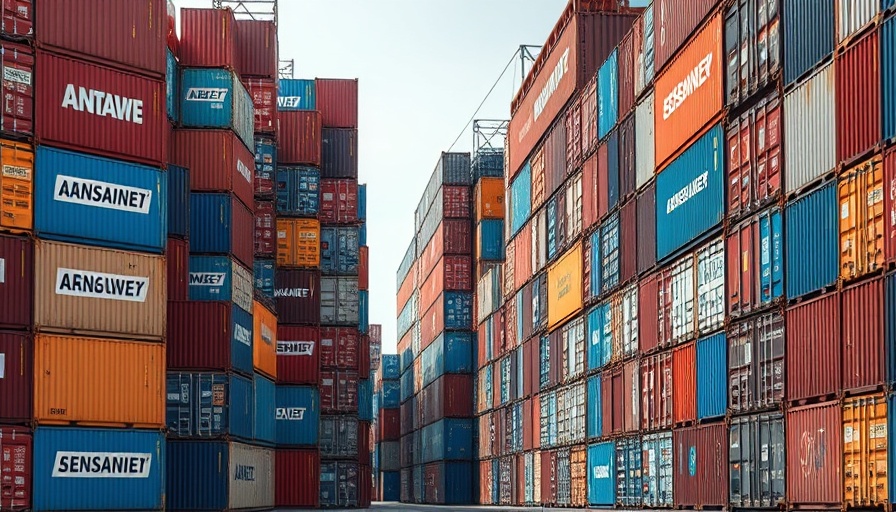
Increasing Trade Tensions Between China and the U.S.
The recent escalation in trade disputes has reached new heights, with China officially accusing the United States of 'seriously violating' their existing trade truce. This accusation not only reflects the ongoing concerns surrounding international trade but also highlights the fragility of the agreements that once seemed to hold promise for stability in a turbulent global economy.
Understanding the Background of U.S.-China Trade Relations
Trade relations between the U.S. and China have been characterized by both competition and collaboration. Historically, these two global powerhouses have oscillated between attempts to strengthen ties through trade agreements and instances of retaliatory tariffs and sanctions. The recent accusations are a stark reminder of how easily trust can be eroded.
What the Violation Claims Mean for Global Markets
China’s claims of trade violations by the U.S. are likely to provoke responses that could affect global markets, particularly in technology and manufacturing sectors. Investors in Silicon Valley and beyond are keenly watching to understand how this dispute might influence venture capital funding and the startup ecosystem. As businesses brace for potential tariffs or trade barriers, the situation cultivates an environment of hesitance in various markets, raising concerns about future business growth.
The Impact on Silicon Valley Startups and Investors
For companies in the Bay Area, particularly in technology sectors, this trade dispute can have significant implications. Startups relying on partnerships and tech import/export dynamics may find themselves more vulnerable than ever. Should retaliatory measures heave forth, venture capital funding could slow, directly influencing employment trends and business growth strategies.
Future Predictions: Navigating the Trade Landscape
As tensions continue, business leaders in the Bay Area are pondering their next steps. The trade landscape might shift, pushing corporate strategies towards internal innovation and alternative markets. Entrepreneurs should consider focusing on sustainable practices that align with corporate social responsibility, potentially positioning themselves favorably in a changing market environment.
Coping Strategies for Bay Area Businesses
In light of potential disruptions from these trade disputes, businesses might explore various coping strategies. Strengthening supply chains, evaluating corporate partnerships, and investing in local business networking events can help startups mitigate risks associated with international politics. Additionally, adopting sustainability-focused business practices may not only improve corporate culture but could also lend a competitive edge amid fluctuating regulations.
Counterarguments: A Broader Perspective on International Trade
While China's claims are significant, it is crucial to consider varying perspectives. Some analysts argue that the allegations could be a strategic move to divert attention from China's own trade practices. This situation underscores the complexities of international trade, emphasizing that accusations can lead to a cycle of retaliation that benefits neither side.
Conclusion: What’s Next for U.S.-China Relations?
The economic relationship between China and the U.S. is at a crossroads, influencing not just bilateral trade but also shaping global economic policies. As the situation evolves, Bay Area entrepreneurs and investors must stay informed and agile, preparing to adapt to new regulatory landscapes and market conditions.
 Add Row
Add Row  Add
Add 



Write A Comment